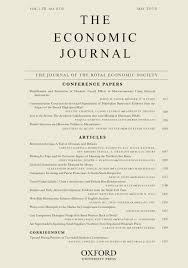
Akcomak, S., Webbink, D. and \ter Weel\, B. (2016). Why Did the Netherlands Develop So Early? The Legacy of the Brethren of the Common Life Economic Journal, 126(593):821--860.
-
Affiliated authorsDinand Webbink, Bas ter Weel
-
Publication year2016
-
JournalEconomic Journal
This research establishes a link between the Brethren of the Common Life (BCL), a religious community founded by Geert Groote in Deventer in the late fourteenth century, and the early economic development of the Netherlands. The BCL stimulated human capital accumulation. The historical analyses show that the BCL contributed to the high rates of literacy, to the high level of book production and to city growth in the Netherlands. These findings are supported by a set of OLS regressions and further corroborated by 2SLS estimates that use distance from Deventer as an instrument for the presence of the BCL.